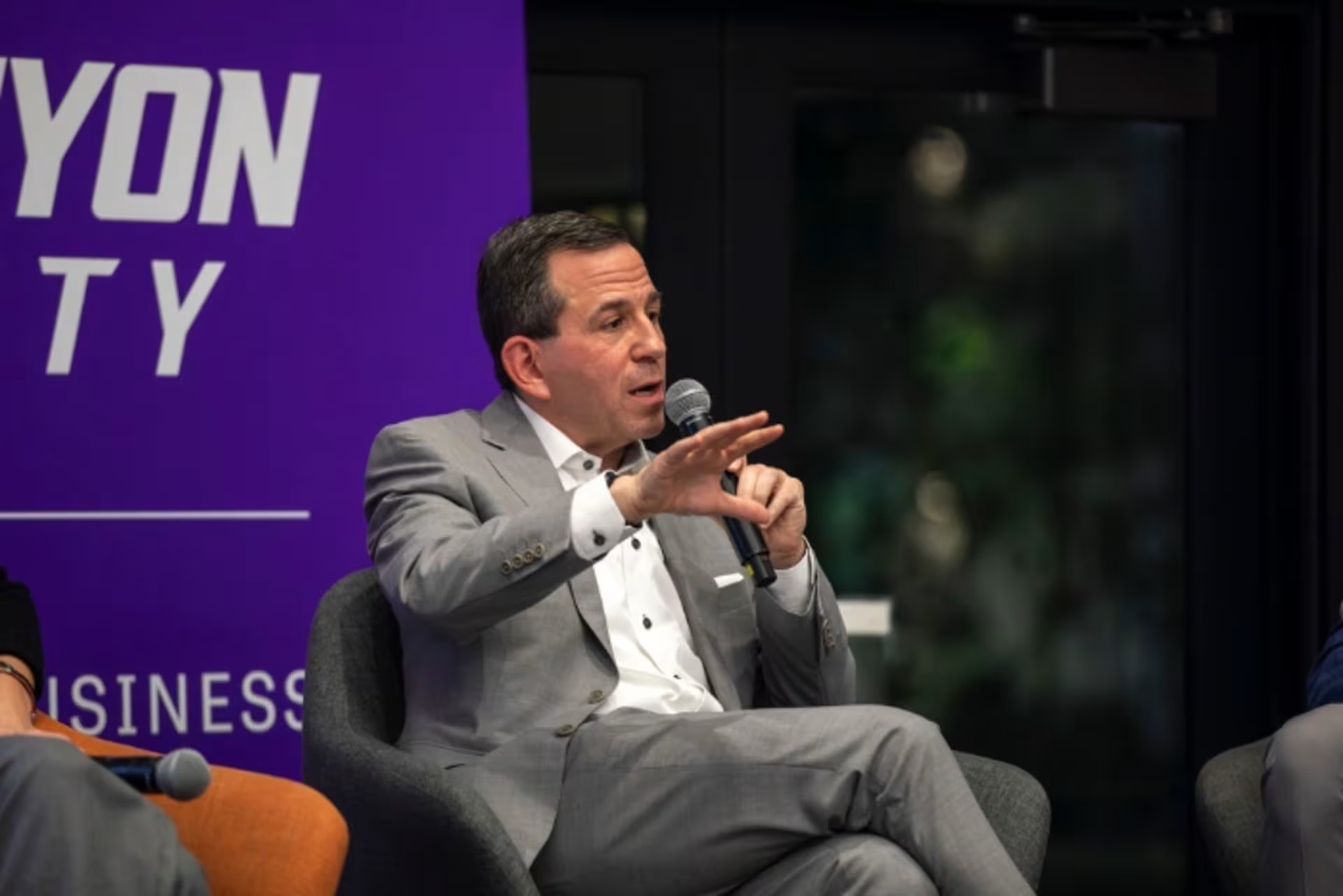
Bachelor’s in Risk Management Degree
Prepare To Identify, Analyze and Manage Risks in Organizations
Grand Canyon University’s Bachelor of Science in Risk Management program can prepare you for a future career working in risk management and insurance. This program was created to help students set themselves up for the opportunity to obtain jobs in risk, insurance, corporate finance and banking. Upon completion of this risk management degree, you may be able to identify, analyze and manage risks within an organization.

Up to 90 credits, only 84 can be lower division
Credits: Fill out the Lopes Eval to find out what will transfer
Admission Requirements (Bachelor's)
- 16+ years old
- High School Graduate
- 3.0+ Unweighted GPA
OR 2.5+ Unweighted GPA and
- ACT: 19
- SAT: 1000*
Admission requirements may differ based on degree level, program and modality, or transfer status. Some programs of study may require a higher GPA and/or other qualifying criteria for admission. Please review full admission and program requirements in the University Policy Handbook.
*Math and reading only on a 1600 point scale (test date after 3/1/2016). SAT score of 1380 required for 2400 point scale (test date before 3/1/2016).
Benefits of Pursuing Your Degree in Risk Management From GCU
GCU offers risk management students a comprehensive business education that may be applicable to many industries and careers. Benefits of completing your risk management degree from GCU include:
Median annual salary of financial risk specialists in May 2022(See disclaimer 2)

Earn Your Bachelor’s in Risk Management Degree Online
This risk management bachelor’s program is offered in an on-campus and online format. Our online programs are consistent with our mission to develop servant leaders who have the business skills and values to drive organizational success and positively impact society.
GCU’s online programs may be ideal for working professionals and can be completed from anywhere, at any time. Additionally, online students have access to many of the same benefits as traditional students enrolled in risk management courses, including knowledgeable faculty members, student services counselors and online resources.
Risk Management Courses Offered in This Degree Program
In GCU’s Bachelor of Science in Risk Management program, you can learn about the risk management process including identifying and analyzing risk, understanding how risk impacts businesses/individuals and what mitigation techniques such as insurance may be available to protect assets. In addition, you can study organizational and enterprise risk management.
Finally, you will be taught about the accounting cycle and the construction of financial statements, examine the market forces of supply and demand under different market structures, discuss the basic functions of the monetary system, analyze the macro economy in terms of long-run economic productivity and growth and in terms of short-run fluctuations, build financial models to help analyze a company and more.
To graduate from this program, you must pass risk management courses. Course topics covered in this program include:

Career Pathways for Risk Management Graduates
After completing GCU’s Bachelor of Science in Risk Management degree program, you will have the opportunity to be well versed in methods of mitigating and managing risk within an organization. BS degree in risk management graduates may go on to become:
Risk Management Degree FAQs
If you’re exploring a possible career in risk management, read through some frequently asked questions to learn more about this career path and earning your bachelor’s degree.
Why is risk management important?
Are risk management jobs needed?
Is the degree in risk management hard?
Program Curriculum
General Education Requirements
Core Courses

To learn more about enrolling in your risk management degree online or on campus at GCU, fill out the form on this page to get in contact with a university counselor.
- COVID-19 has adversely affected the global economy and data from 2020 to 2022 may be atypical compared to prior years. Accordingly, data shown is effective September 2022, which can be found here: U.S. Bureau of Labor Statistics, Occupational Outlook Handbook, Business and Financial Occupations, retrieved on April 1, 2024.
- The earnings referenced were reported by the U.S. Bureau of Labor Statistics (“BLS”), Financial Risk Specialists, as of May 2022, retrieved on April 1, 2024. Due to COVID-19, data from 2020 to 2022 may be atypical compared to prior years. BLS calculates the median using salaries of workers nationwide with varying levels of education and experience. It does not reflect the earnings of GCU graduates as financial risk specialists, nor does it reflect earnings of workers in one city or region of the country or a typical entry-level salary. Median income is the statistical midpoint for the range of salaries in a specific occupation. It represents what you would earn if you were paid more money than half the workers in an occupation, and less than half the workers in an occupation. It may give you a basis to estimate what you might earn at some point if you enter this career. Grand Canyon University can make no guarantees on individual graduates’ salaries. Your employability will be determined by numerous factors over which GCU has no control, such as the employer the graduate chooses to apply to, the graduate’s experience level, individual characteristics, skills, etc., against a pool of candidates.


